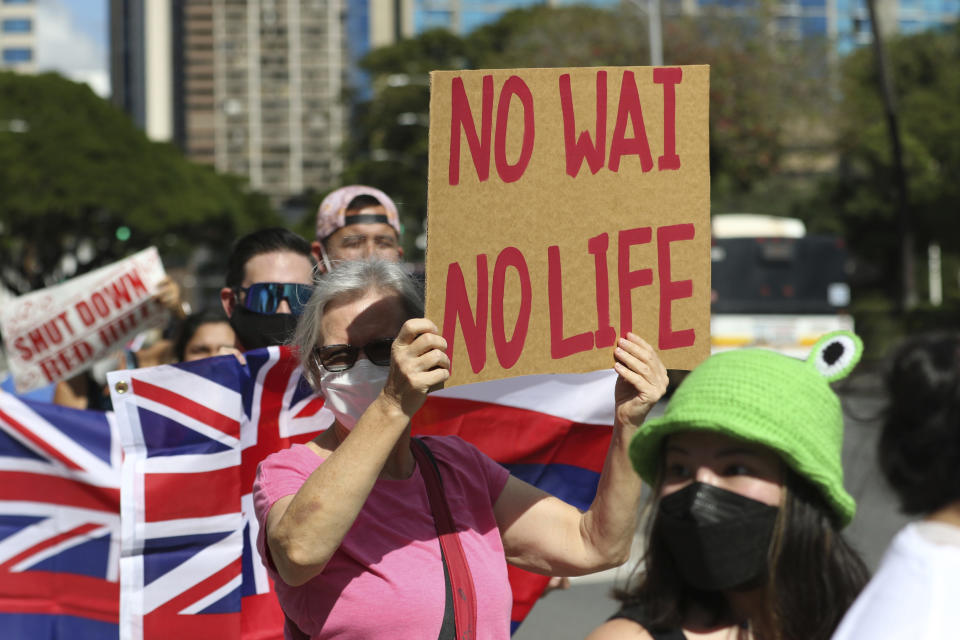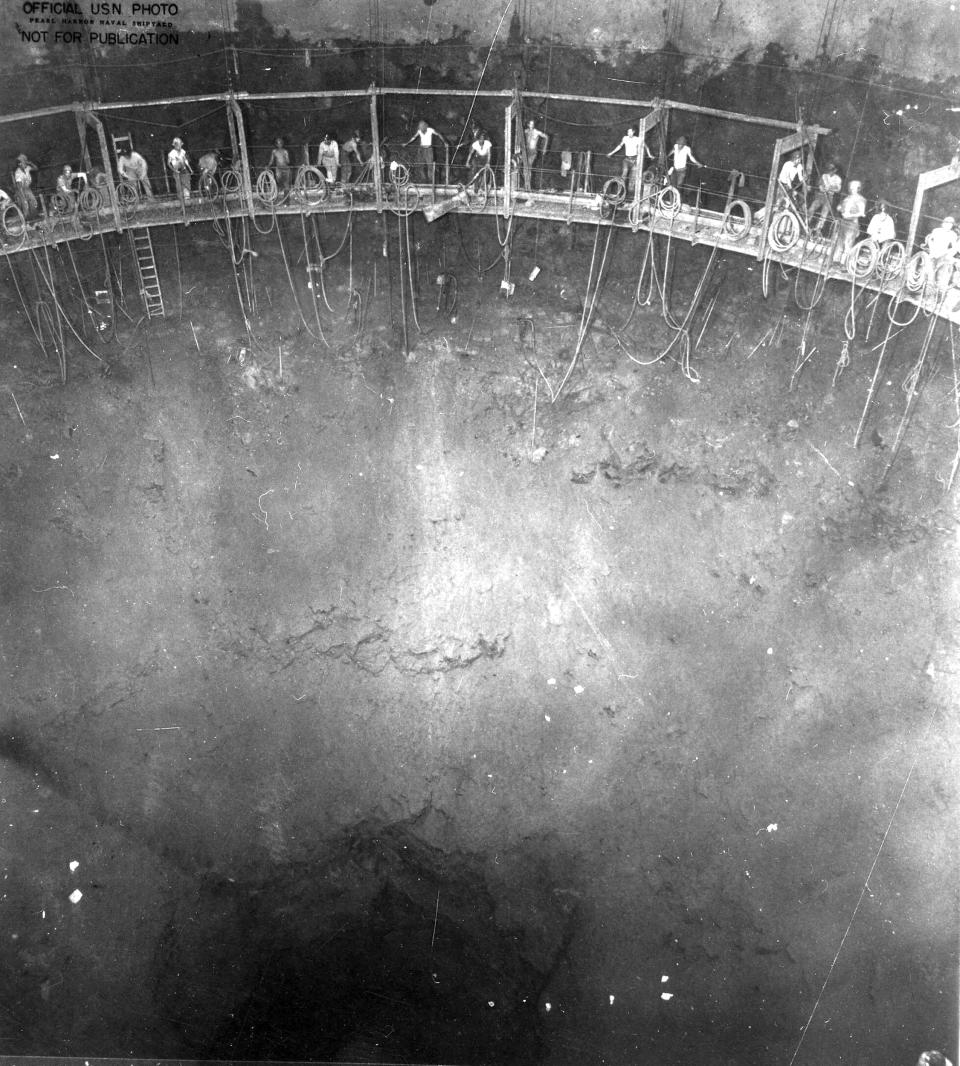Military families sue U.S. over 'poisoned' drinking water at Pearl Harbor
They are sick because “they all drank the bad water.”
That is what four ailing military families formerly based in Hawaii claim in a federal lawsuit filed this week against the U.S. government, alleging they were poisoned by drinking water that was contaminated by leaks from the Red Hill bulk fuel storage facility, near Pearl Harbor.
The four plaintiffs are among some 6,000 people poisoned and forced to evacuate their homes last year.
“When four-year-old I.W. has to explain what happened to her, why the ‘butterfly’ in her neck is swollen, and her hair falls out, and the blood draw makes her cry, she tells me, ‘It’s because I drank the bad water,’” the opening line of the complaint filed Wednesday in the District of Hawaii states.
The “butterfly” is a euphemism for the hypothyroidism the little girl suffers from, according to the court papers. Her mother, Ariana Wyatt, is married to a U.S. Air Force officer.
Then, in language that reads more like a newspaper article than a legal court document, the complaint goes on to describe how former pro-golfer Patrick Feindt, whose wife Amanda is an Army major, has undergone five surgeries and contends with persistent abdominal pain.
It also describes how another plaintiff, Nastasia Freeman, “spent her family savings to get off the island” but still suffers seizures and wakes up with her mind “blank” and blood in her mouth. Her husband is still serving in the U.S. Navy, the complaint states.
“It’s the same reason (plaintiff) Jamie Simic weighs less than 98 pounds and tells her children the things they need to know when she passes,” the complaint states. “They all drank the bad water.”
Simic’s husband is a Navy officer, according to the complaint.
The Hosoda Law Group in Honolulu and the Texas-based Just Well Law firm filed the lawsuit on behalf of the Feindt, Freeman, Simic and Wyatt families under the Federal Torts Claims Act, which states that the United States “shall be liable for actual or compensatory damages.”
“Ariana Wyatt wants accountability and change,” Just Well Law attorney Kristina Baehr said in an email to NBC News. “She wants to ensure that this never happens to another little girl on American soil."
So do the other families, Baehr said.
“The government is not going to make changes unless they are held accountable,” she said. “They didn’t warn these families that their water was contaminated when they knew it was contaminated — that’s poisoning.”

In response to an inquiry from NBC News, a U.S. Navy spokesperson said in a statement they don’t “comment on ongoing litigation.”
“The Navy’s priorities are to ensure the safety and health of our people, their families, and the community members impacted by the Red Hill fuel spill, provide responses to their concerns, and ensure access to clean drinking water.”
In a report issued earlier this year following an investigation into the matter, the Navy acknowledged a leak into Pearl Harbor’s tap water and blamed it on poor training and shoddy management.
The source of the leaks, the Navy concluded, was the Red Hill Bulk Fuel Storage Facility, a massive World War II-era tank farm located in the hills above Pearl Harbor. From there, the fuel seeped into a well that supplied water to housing and offices in and around the sprawling base.

“After months of resistance, the military in April agreed to an order from the state of Hawaii to drain the tanks and close the Red Hill facility,” NBC News reported at the time.
But that came too late for the families that are now suing the government, and who also allege they received “subpar care from the government.”
“In some instances, the United States has failed to treat the plaintiffs altogether, refusing appropriate tests or treatment,” the complaint states.
The families are now seeking “compensatory damages, in an amount to be determined at trial,” the complaint states.
“It is one thing to cause contamination and poison families,” Baehr said in the email to NBC News. “It is another thing to look at those sick families and tell them that they’re not sick. That is the current position of the Navy. The Navy accepted responsibility for the jet fuel leaks but refuses to acknowledge any lasting medical harm or risk.”
This article was originally published on NBCNews.com

